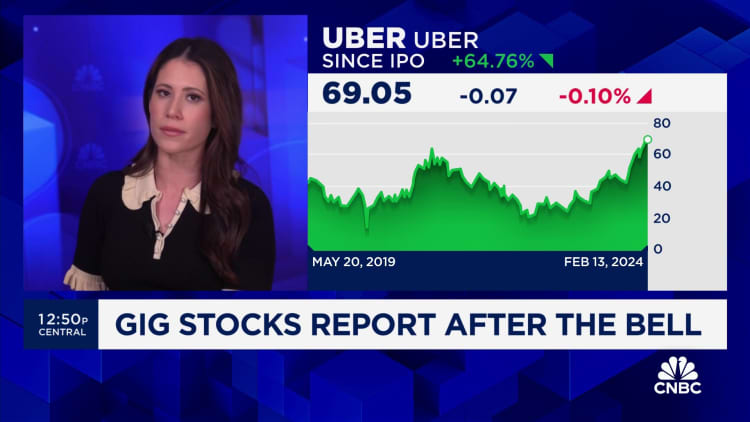
In the world of tech and business, data and decision-making are practically an inseparable pair. Companies from all sizes—from small businesses to Fortune 500 corporations—are using data for things like targeting ads, predicting customer performance, and identifying cost-cutting strategies.
By next year, data will be used to optimize nearly every aspect of work, McKinsey predicts. Challenges that once may have taken years to solve are now resolvable in days, sometimes hours, thanks to data.
ADVERTISEMENT
UNC Kenan-Flagler’s #1-ranked online MBA
STEM-designated. Tar Heel ROI. No compromises. Visit Website
These rapid developments in tech are causing many business professionals to reassess their own skill sets and look toward newer role opportunities that are popping up—with new roles like chief data officer and chief AI officer popping up. And, for those just starting out, making sure you’re learning the most up-to-date, in-demand skills is paramount to remain competitive and stand out among the hundreds of others interested in the space.
Entry-level business analysis professionals earn $57,693—according to the International Institute of Business Analysis’s 2023 Global State of Business Analysis report.
Business analysts are very important and are needed at every company, says Yao Morin is the chief technology officer at JLL.
“I think it’s a very crucial role,” Morin tells Fortune. “One of the things I always tell my business analysts team is that, ‘you are the face of data.’”
Where can you learn business analytics?
For individuals fascinated by data’s interaction with business, thankfully there are a number of ways to dive deep and learn the necessary skills to excel.
For a broad overview, starting by watching videos on platforms like YouTube or LinkedIn Learning or exploring basic course offerings on Udemy or Coursera is a great starting point.
If the data analytics side of things is most intriguing, Fortune has answered some of the top questions surrounding the differences between data science and data analytics as well as some of the ways to learn data analytics skills.
Otherwise, organizations such as the IIBA and the Project Management Institute offer industry-recognized certifications that can help prove your skills, which may be especially helpful for anyone with existing experience in business analytics or are big on self-guided learning. Do keep in mind that the examination alone can cost several hundred dollars.
But for those needing a little more structure to their learning and studying, looking more deeply into a course and certification programs may be the way to go. Many Ivy League universities—which happen to usually have some of the best business schools—offer part-time, online certificate opportunities that won’t break the bank as much as a bootcamp or degree.
In your research, consider each program with a grain of salt because it is not uncommon for schools in business analytics to have partnerships with companies and thus the curriculum may not be as rigorous. It is important to analyze the program’s curriculum, instructors, and goals—as well as price and timeline—to make sure it all aligns with your own mission.
Below, Fortune has provided a list of some of the business analytics courses/certifications out there (for those looking for an even deeper dive, check out our ranking of the best online master’s in business analytics).
Cost: $3,900
Format: Online
Timeline: 3 months (3–5 hours/week)
Course examples: Harvesting Spreadsheet Data; Using Prescriptive Analytics in Excel; Creating and Sharing Interactive Data Models
Cost: $49/month (also part of Coursera Plus)
Format: Online
Timeline: 6 months (10 hours/week)
Course examples: Analyze Data to Answer Questions; Process Data from Dirty to Clean; Ask Questions to Make Data-Driven Decisions
GreenFig: Business Analytics Certificate Program
Partners: Various universities, including Texas Tech, UNC-Charlotte, University of Arizona, University of Virginia
Cost: $2,750 (discounts may apply)
Format: Online
Timeline: 10 weeks (6–8 hours/week)
Course examples: Technical Introduction: Data Models; Learn the Basics of SQL; AI & Machine Learning in Business Analytics
Cost: $1,750
Format: Online
Timeline: 8 weeks (5 hours/week)
Course examples: Describing and Summarizing Data; Hypothesis Testing; Single Variable Linear Regression
Cost: $49/month
Format: Online
Timeline: 4 months (10 hours/week)
Course examples: Excel Basics for Data Analysis; Data Analysis with Python; Data Visualization with Python
Cost: $2,600 (discounts may apply)
Format: Online
Timeline: 9 weeks (4–6 hours/week)
Course examples: Leading with Analytics; Linking Analytics with Actions; Distinguish Good from Bad Analytics
Cost: $2,850 (discounts may apply)
Format: Online
Timeline: 9 weeks (6–8 hours/week)
Course examples: Descriptive Analytics: Gathering Insights; Predictive Analytics: Tools for Decision Making; Application of Analytics for Business
Credit: Source link














